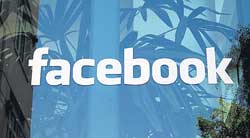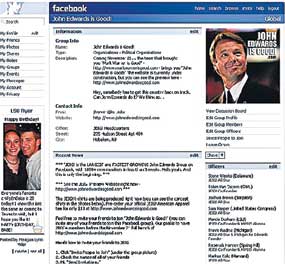
Security and social networkingFacebook introduced new privacy controls last week that gave users the ability to preserve social distinctions between friends, family and co-workers online. The changes will allow Facebook's more than 67 million active users worldwide to control what their friends, and friends of their friends see. Part of Facebook's appeal has been the greater degree of privacy controls it offers users compared with other major social network sites, the site has also been the target of two major rebellions by its users in response to new features many felt exposed previously private information to wider view. Facebook claims however that only 25 percent of existing users have bothered to take control of their privacy using Facebook's existing personal information settings and after a thorough search through my own friends list on Facebook, I found that the numbers match up quite well.
Privacy and data security are prominent issues in the IT industry. Corporations spend billions of dollars on extra measures to protect their data from unauthorised access as well as destruction as well as corruption from natural causes and non-malicious actions. Individuals on the other hand – save a few–seem less concerned about the privacy of their personal information especially on the Internet. Perhaps that is because privacy is very much a personal issue or preference for individuals. The dangers that threaten the security and privacy of information in computer networks in particular is potentially equally damaging to individuals as it is for organisations and more and more individuals are exposing themselves (and their private information) to potential black-mailers, bullies and stalkers. Attacks on individuals and their online identities are often by personal definition as well as in their motive. Perhaps, it is because individuals take more leverage out of the fact that they are only answerable to themselves – unlike organizations that have to answer to their shareholders for example. Individuals also suffer the consequences of their lack of concern for privacy alone and in private – rarely seeking help.
The point I am actually trying to make is that, we must realise that there are a basic set of knowledge and skills that each individual needs to be well versed in before 'stepping into' the internet – just like we have to know how to drive and have a good knowledge about road rules and basic car care before we are legally allowed to drive. Disregarding the importance of knowing how to use the Internet in a meaningful, courteous and safe manner can not only lead to a net loss in your online interactions but can be also dangerous. Back on Facebook, the company is working on a new instant messaging chat feature that runs on the web browser, allowing users to hold spontaneous back-and- forth chat with their friends on the site without the need to download or install any software. Facebook Chat, as the feature is known, will be introduced in a matter of weeks. Improve your computer literacy Google Docs and Spreadsheets Google Docs ands Spreadsheets provides an online editor to format documents, and also lets users upload Word documents, OpenOffice, RTF, HTML or text. You can also download documents to your desktop as Word, PDF and other formats. Other features enable you to view your documents' revision history and roll back to any version. Bits and bites 'Power' source According to Intel's chief technologist for open source, the success of consumer IT products like the ASUS Eee PC will help provide the leverage needed to get hardware vendors on board with open source. He believes the install base of Linux-based desktops could potentially double this year, based just on Eee PC sales. Speaking at open source conference in Melbourne last week, he said commercial pressure will be the incentive for traditionally Windows-centric hardware vendors to begin offering open source drivers and Linux-based systems to their customers. "The amount of money being lost by hardware vendors who won't learn about open source is very hard to quantify. But hardware vendors can't ignore that billions are being made by hardware designed to be used with open source. Of the top 500 fastest super computers in the world, currently half of them are running on Linux. A third of access points are running Linux" he said. Open source has made the most inroads in the server market, where Linux-based servers represent roughly a quarter of the total market. But vendors are less interested in other segments such as mobile phones and desktops where open source hasn't had as much of an impact. Crazy bits Excessive gaming and email/text messaging should be added to psychiatry's official guidebook of mental disorders, according to an article in this month's American Journal of Psychiatry. Research by Dr Jerald J Block outlined four distinct symptoms displayed by sufferers. Withdrawal and an associated sense of anger or depression when users cannot reach a computer, the constant need for better equipment and the feeling of social isolation and fatigue are all signs of technology-related mental disorders. The conditions are difficult to treat because internet addiction is resistant to treatment, entails significant risks and has high relapse rates. |
|
||||||
|| Front
Page | News | Editorial | Columns | Sports | Plus | Financial
Times | International | Mirror | TV
Times | Funday
Times || |
| |
Reproduction of articles permitted when used without any alterations to contents and a link to the source page.
|
© Copyright
2008 | Wijeya
Newspapers Ltd.Colombo. Sri Lanka. All Rights Reserved. |

